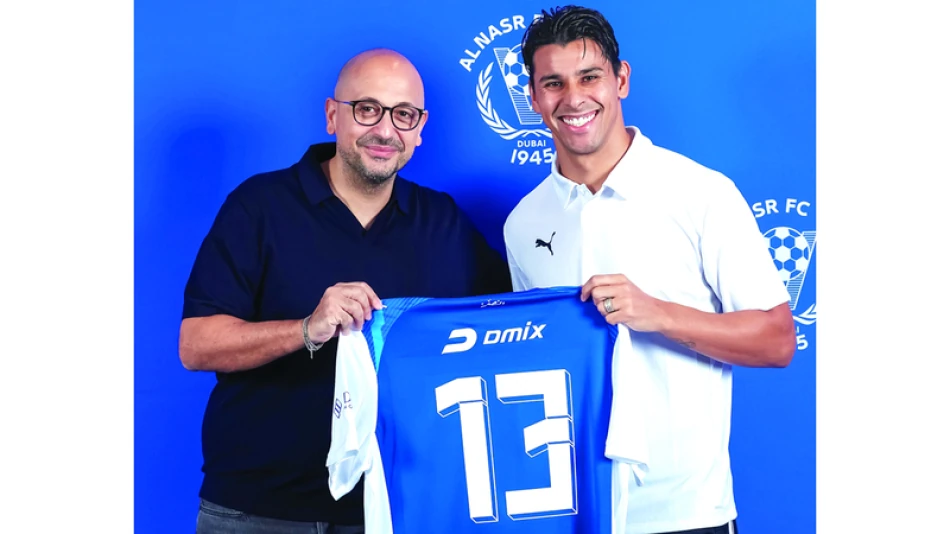
Sharjah FC Signs Swedish Striker Gais, Al-Nassr Resolves Attacking Woes
UAE Pro League Clubs Rush to Complete Last-Minute Transfers Before October Deadline
The UAE's ADNOC Pro League is experiencing a flurry of transfer activity as clubs race against time to strengthen their squads before the summer window closes on October 1st. Six notable signings this week, spanning foreign players and residents, signal an increasingly competitive season ahead as teams scramble to address tactical gaps exposed in early league matches.
Strategic Signings Reveal Tactical Priorities
The week's most significant move saw Al Nasr acquire Argentine striker Ramon Mirez (28) from Al Jazira, a transfer that directly addresses the club's struggles to convert chances into goals during their opening two league fixtures. This internal league movement demonstrates how quickly clubs are adapting their strategies based on early-season performance data.
Meanwhile, Sharjah bolstered their midfield options by signing Swedish midfielder Harun Ibrahim (22) from Gais, registering him under the resident player category. This classification provides crucial squad flexibility, allowing coaches greater tactical rotation without exhausting foreign player quotas.
Youth Investment Strategy Emerges
A clear pattern toward youth development emerged across multiple clubs. Al Bataeh secured promising winger Ali Khamis (22) from Al Uruba on a free transfer, while Al Wasl added midfielder Abdullah Ahmed (21) from Al Wahda, also on a free deal. These moves reflect a broader shift toward developing local talent while managing budget constraints.
Ittihad Kalba's acquisition of Venezuelan left-back Rene Rivas (22) from Saudi Arabia's Al Taawoun exemplifies the league's ability to attract talent from regional competitors, particularly players who can contribute both defensively and offensively from wide positions.
Coaching Changes Signal Ambitious Reset
The most striking development came from Al Jazira's appointment of Dutch-Croatian coach Marino Pusic (54), former Shakhtar manager, replacing Morocco's Hussein Ammouta. This high-profile coaching change suggests the club's determination to compete across all domestic competitions and potentially make an impact in continental tournaments.
Pusic's European pedigree brings tactical sophistication that could influence how other UAE clubs approach their own coaching decisions, potentially triggering a domino effect of similar appointments.
Market Dynamics and Regional Competition
The transfer activity reveals the UAE league's position within the Gulf football ecosystem. While Saudi Arabia's Public Investment Fund has dramatically altered regional dynamics with massive spending, UAE clubs are pursuing a more measured approach, focusing on strategic acquisitions rather than headline-grabbing signings.
The emphasis on free transfers and resident player classifications demonstrates financial prudence while maintaining competitive ambition. This contrasts sharply with the Saudi Pro League's approach but mirrors successful models in leagues like the Netherlands and Portugal, where smart recruitment often trumps big spending.
October Deadline Creates Urgency
The extended transfer window, running from July 10th to October 1st, provides UAE clubs with a significant advantage over European leagues whose windows typically close in late August. This timing allows clubs to assess early-season performance and make targeted improvements, as evidenced by Al Nasr's striker acquisition following their goal-scoring struggles.
The coming weeks will likely see additional movement as clubs finalize their squads for what appears to be shaping up as one of the most competitive ADNOC Pro League seasons in recent memory. The combination of tactical flexibility, youth investment, and strategic coaching appointments suggests a league evolving beyond traditional spending patterns toward more sophisticated football operations.
Most Viewed News

 Sara Khaled
Sara Khaled






